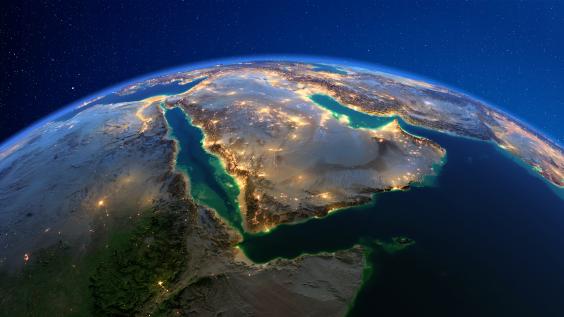Rebalancing Regional Security in the Persian Gulf

Table of Contents
Author(s)
Share this Publication
- Download PDF
- Print This Publication
- Cite This Publication Copy Citation
Ulrichsen, Kristian Coates, PhD. "Rebalancing Regional Security in the Persian Gulf." Baker Institute for Public Policy Center for the Middle East, February 2020. PDF. (https://doi.org/10.25613/n8xe-hj20).
Tags
To access the full paper, download the PDF on the left-hand sidebar.
Introduction
Spiraling tensions in the Persian Gulf have placed immense strain on a regional security structure that was itself in a state of flux even prior to the pattern of attacks on maritime and energy targets that began in May 2019. Developments since then, up to and including the January 3, 2020, killing of Qassim Soleimani, the commander of Iran’s Quds Force, in a U.S. drone strike in Iraq, have exposed the limitations of a status quo in the Persian Gulf that emerged in the 1980s and has changed little in 30 years. The fallout from the spike in U.S.-Iran tension has caused longstanding partners in the Arabian Peninsula to question and second-guess the deterrence value of U.S. security guarantees they had for decades taken largely for granted. While the unpredictability of the Trump administration’s approach to regional (and international affairs) looks set to continue until the November election, and probably beyond, the convergence of a set of deeper regional trends may, paradoxically, lead to greater balance in Gulf security in the longer-term.
This research paper examines how underlying shifts in security dynamics in the Gulf may evolve as regional states respond to the perception of receding U.S. leadership by further diversifying security relationships and internationalizing what until the 2010s had been a solidly Western-centric web of partnerships. It begins by analyzing how the security structures that developed in the 1980s and 1990s achieved neither a workable regional order nor a viable security community in the Persian Gulf. This leads to a second section that analyzes how regional perceptions of U.S. policy during both the Barack H. Obama and Donald J. Trump administrations created conditions of great uncertainty among U.S. partners. Concerns about their possible “abandonment” multiplied in key Arab Gulf capitals in 2019 with each successive “incident” in and around the Persian Gulf. The third and final section explores how the diversification and internationalization of security relationships may eventually lead to greater balance in the region, as new participants likely will resist the pressure to “take sides” in regional standoffs.



